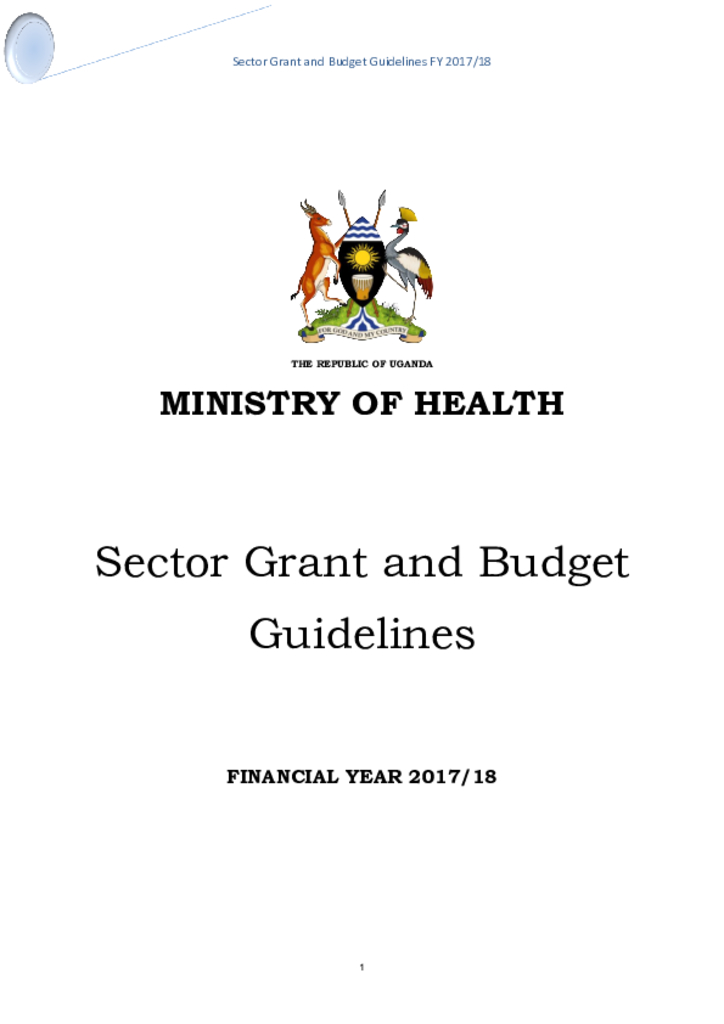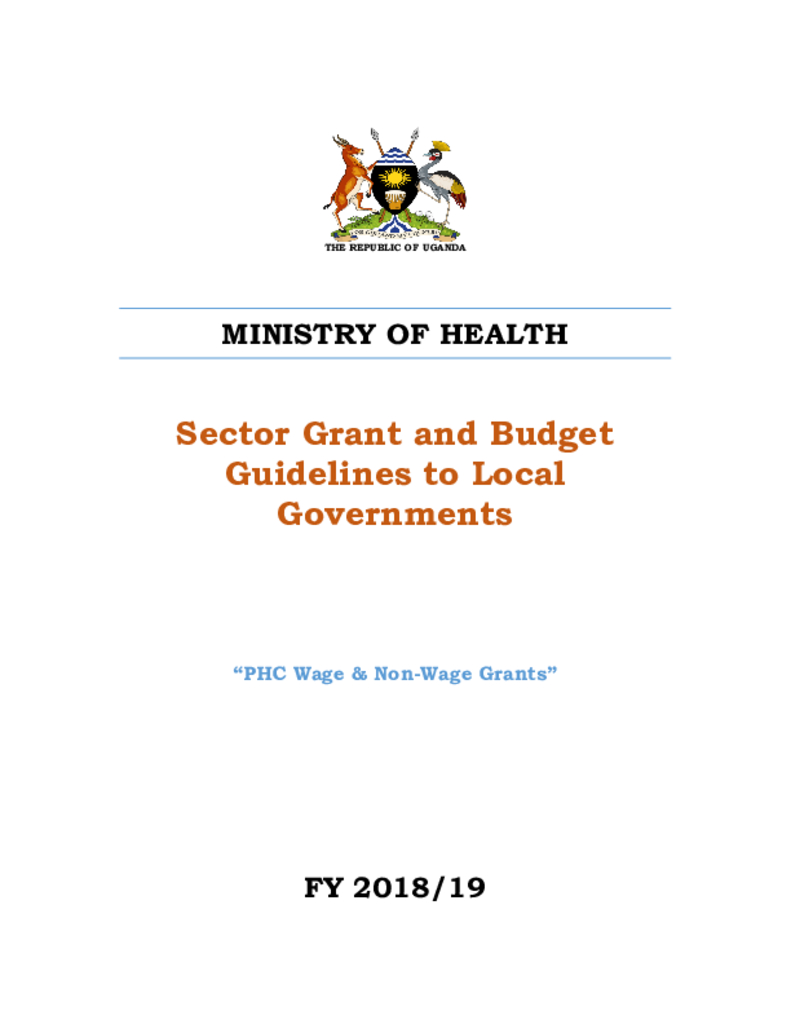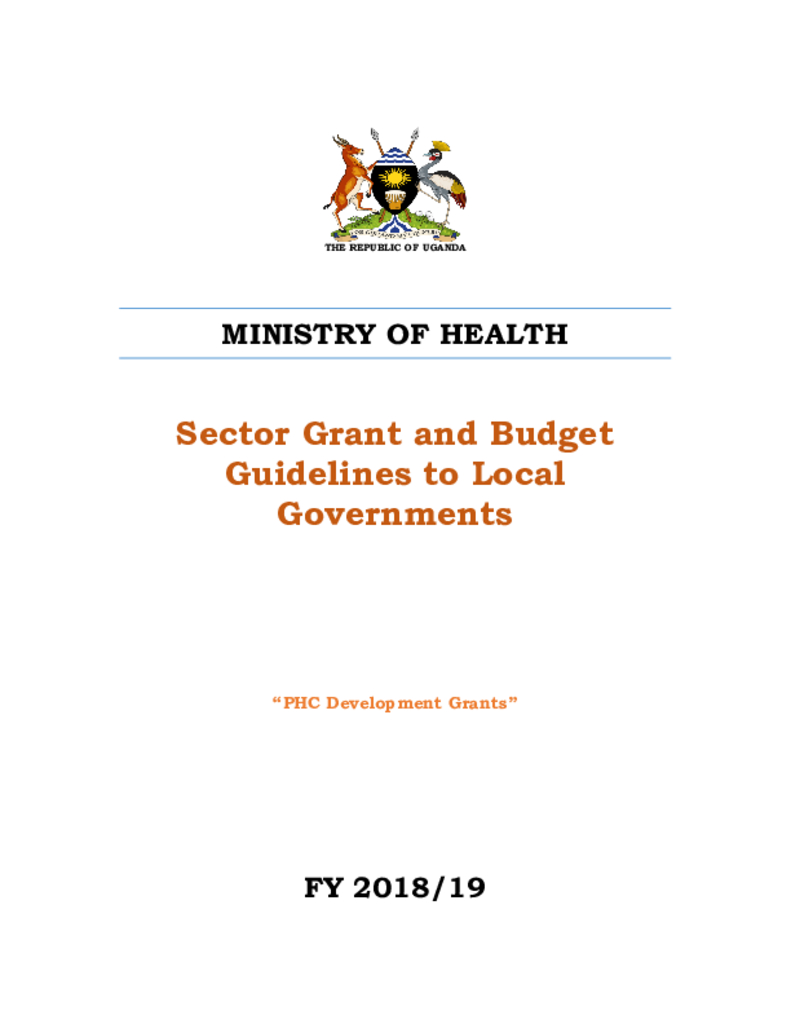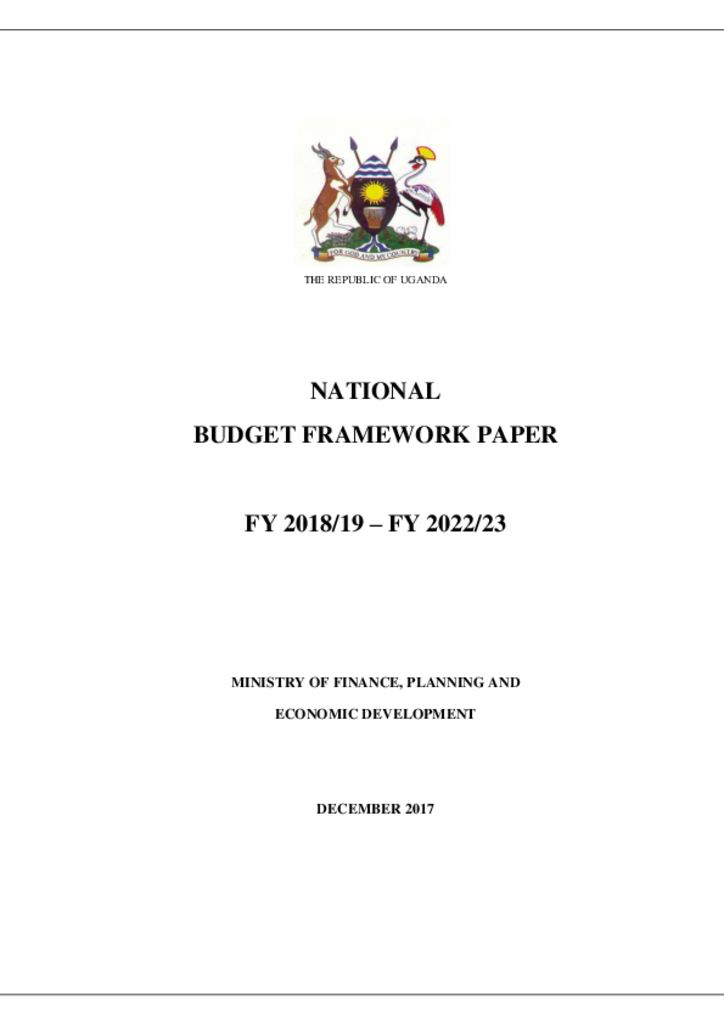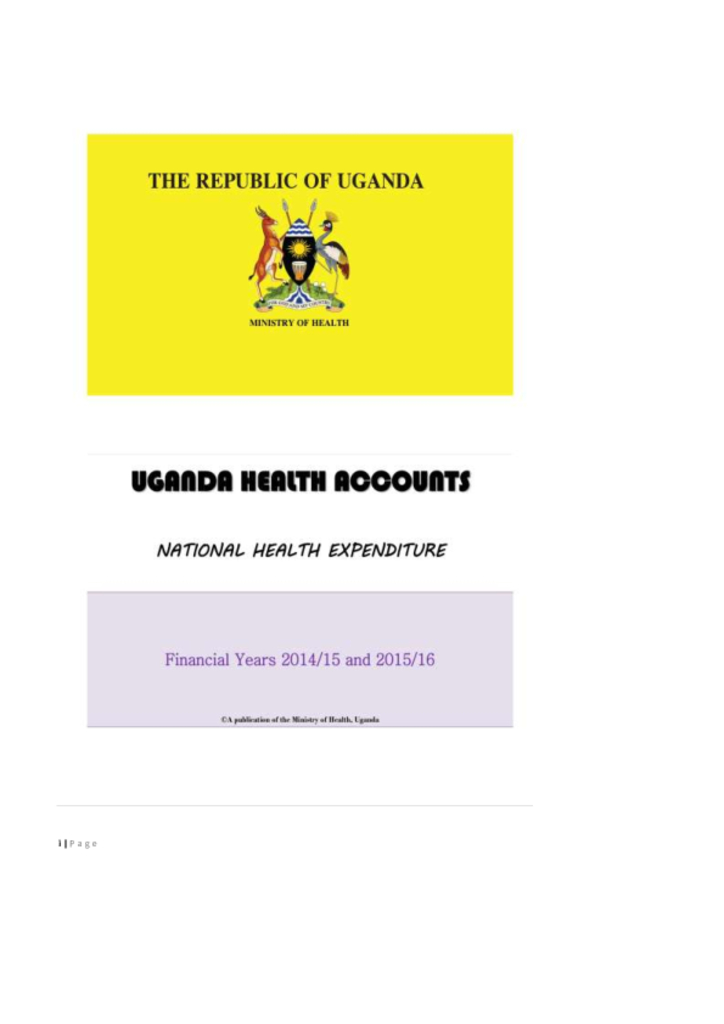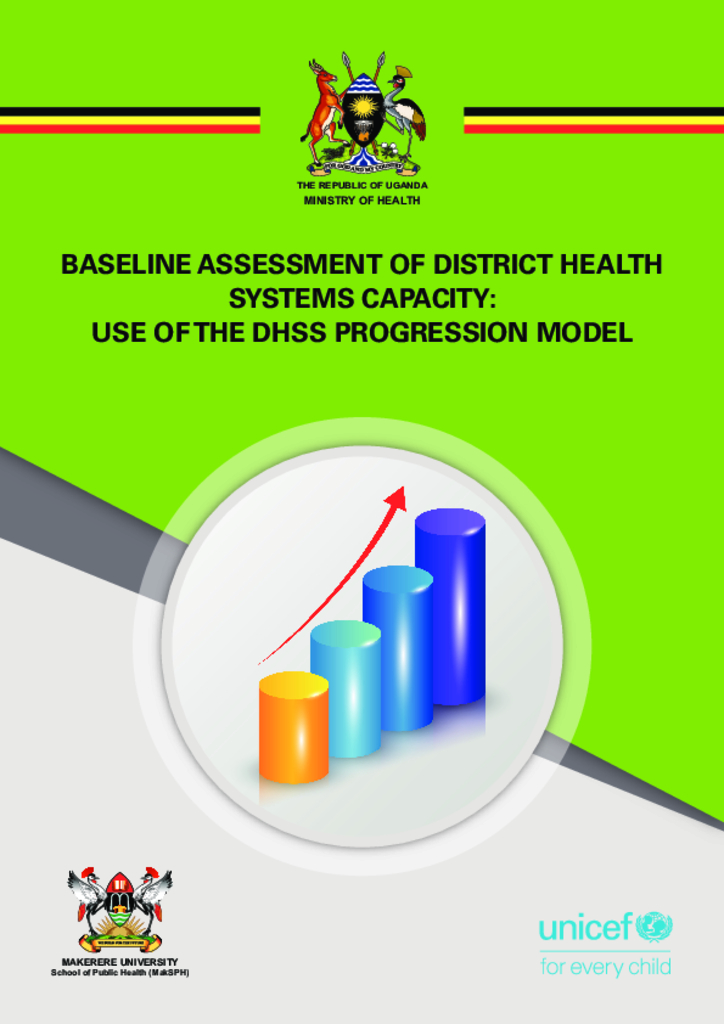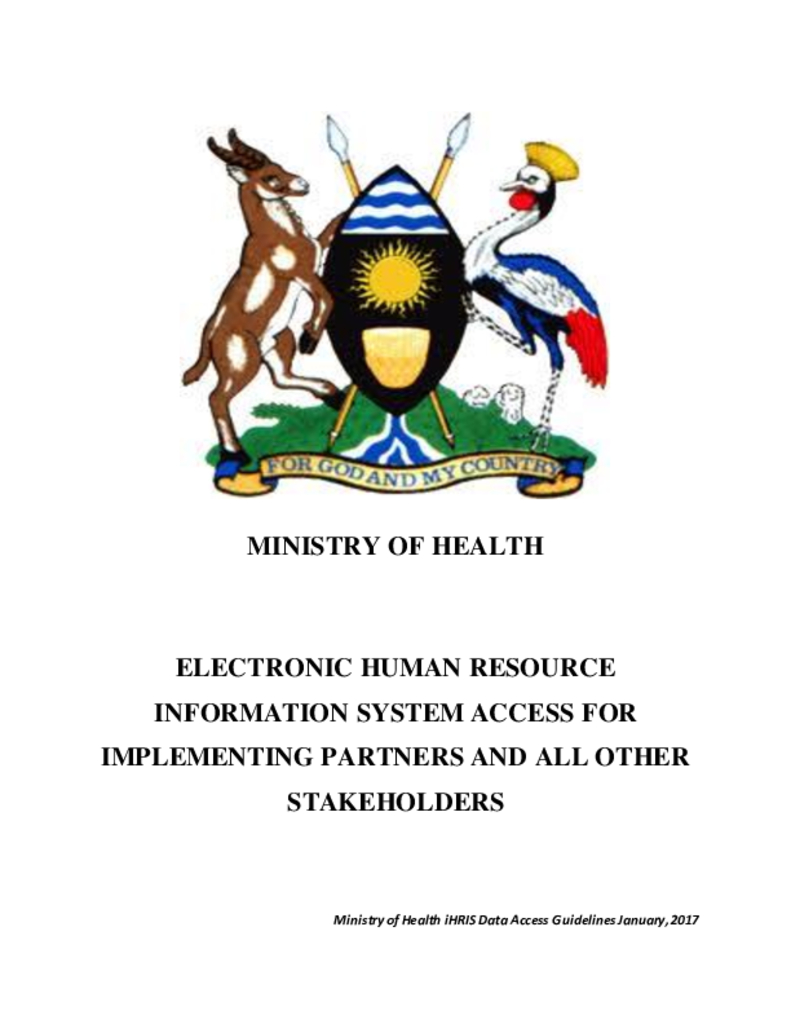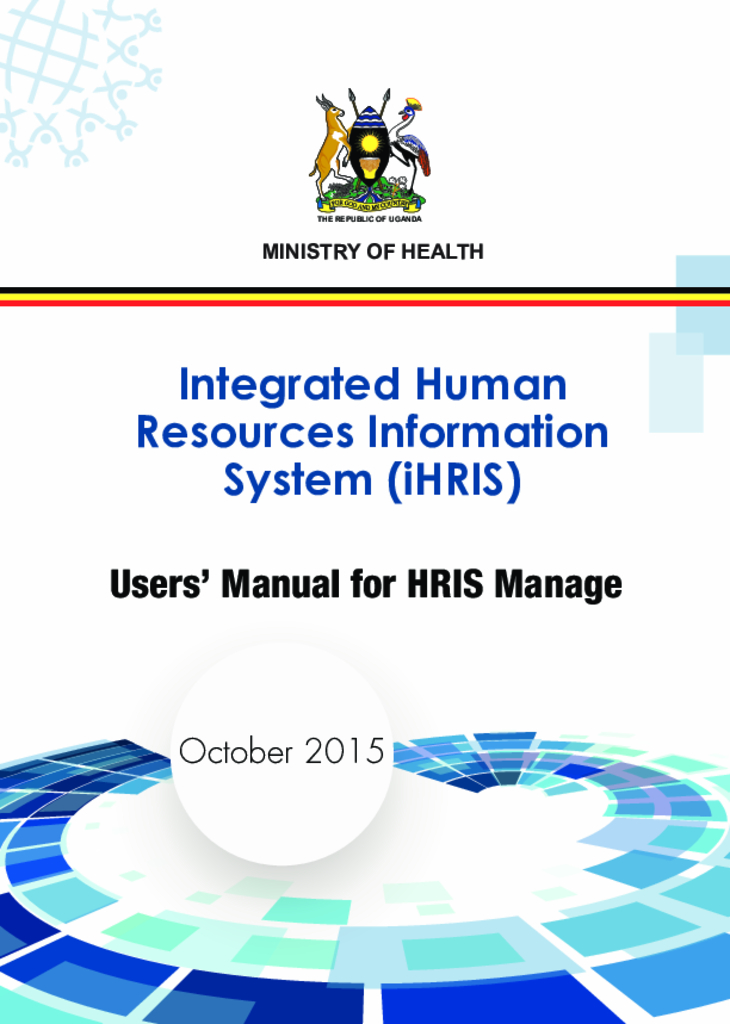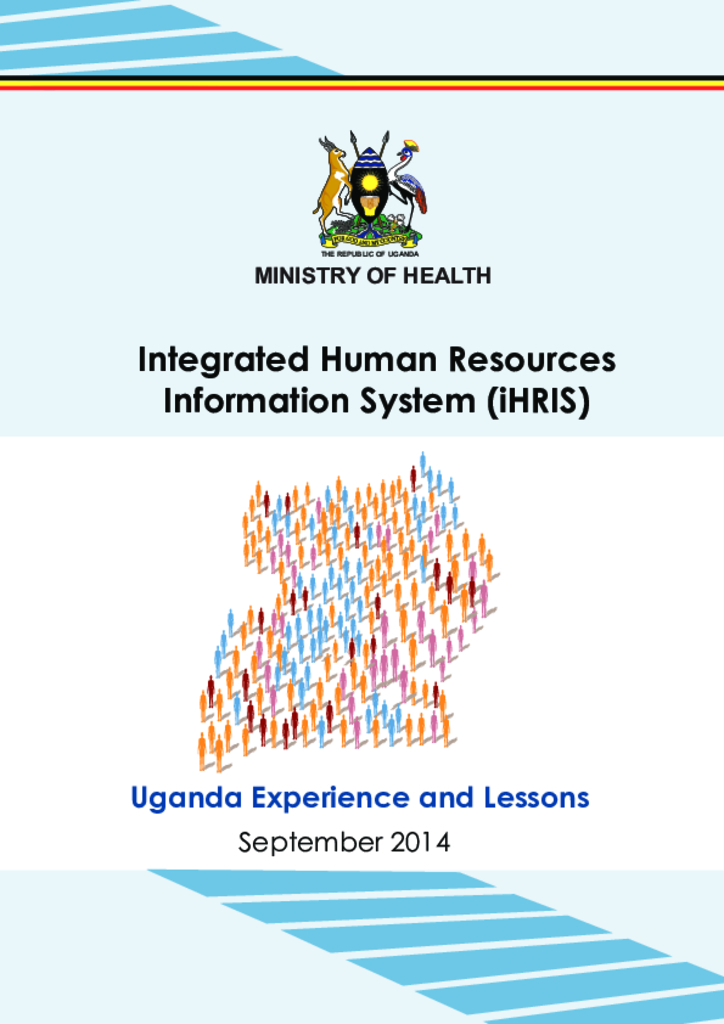These guidelines are issued by the Ministry of Health to Local Governments to provide information about the sector conditional grants and guide the preparation of Local Government budget estimates for the Health sector. They give details of (i) the national policies for the sector, (ii) the role and mandate of Local Governments in the sectors, (iii) an overview of Central Government grants to Local Governments, (iv) an explanation of how these are allocated to each Local Government, and (v) requirements that Local Governments must follow when preparing the budget.
The Budget for Fiscal Year 2017/18 is themed: “Industrialisation for Job Creation and Shared Prosperity” in line with that of the East African Community. This theme corresponds with that of the second National Development Plan (NDPII):‘‘Strengthening Uganda’s Competitiveness for Sustainable Wealth Creation, Employment and Inclusive Growth”. It is also consistent with the theme of Africa’s Agenda 2063 which is about a prosperous Africa based on inclusive growth and sustainable development1
These guidelines are issued by the Ministry of Health (MoH) to Local Governments (LGs) to provide information about the sector conditional grants and guide the preparation of LG budget estimates for the Health sector. They give details of (i) the national policies for the sector, (ii) the role and mandate of Gs in the sectors, (iii) an overview of Central Government grants to LGs, (iv) an explanation of how these are allocated to each LG, and (v) requirements that LGs must follow when preparing the budget.
These guidelines are issued by the Ministry of Health (MoH) to Local Governments (LGs) to provide information about the sector conditional grants and guide the preparation of LG budget estimates for the Health sector. They give details of (i) the national policies for the sector, (ii) the role and mandate of Gs in the sectors, (iii) an overview of Central Government grants to LGs, (iv) an explanation of how these are allocated to each LG, and (v) requirements that LGs must follow when preparing the budget.
1.1 Purpose of the Guidelines This document is to provide guidance for the budgeting and utilization of the Primary Health Care (PHC) grants and other decentralized health grants in Financial Year (FY) 2018/19. These guidelines should be used to prepare
and implement annual work plans for both Public and Private-Not-For-Profit (PNFP) facilities as well as Private Health Provider facilities where feasible /desirable.
The Budget Strategy for FY 2018/19 presented in this National Budget Framework Paper elaborates Governments continued commitment to achieve middle income status. It thus focuses on improving production and productivity in the primary growth sectors – agriculture, manufacturing minerals, and tourism– to drive faster growth of the economy, addressing the infrastructure gaps and other constraints to private sector development as well as overall improvement in delivery of public services to the population, mindful of the need to address emerging issues such as efficient management of urbanisation and hastening demographic transition to reap the demographic dividend.
Current Health Expenditure was 4,944 Billion UGX in financial year 2014/15 equivalent to US$ 1.7 Billion and which represents 1.1% of Gross Domestic Product and for financial year 2015/16 , the CHE was 5,309 billion UGX equivalent to US$ 1.8billion , The health expenditure per capita on average for the two years under study was US$ 51 reducing from US$ 56 in the previous NHA study mainly due to increase population and devaluation of the Uganda Shillings (UGX). The CHE for both years in a row is much lower than the Minimum $84 per capita recommended by WHO(CME) if quality care is to be provided by any country in sub-Sahara African Countries. Over the same period, PPP(GDP) grew in nominal terms by 4.7% on average and in real terms from Ushs.76,727
Billion in 2014/15 to Ushs 86,549 Billion in 2015/16. Current health spending as a percentage of GDP was at 7.1% for 2014/15 and 7.4% for 2015/16.
The study investigated the relationship between Mobile Data Management and Project success. It was guided by the three objectives; (1) To find out the relationship between mobile data collection and project success. (2) To examine the relationship between mobile data analysis and project success. (3) To analyse the relationship between reporting findings and project success. The researcher used a cross sectional survey design under quantitative and qualitative research approaches. Using a self-administered questionnaire, quantitative data was collected from 64 respondents and interviews were conducted with 4 respondents using an interview guide for qualitative data
UNICEF is making significant investments in health system strengthening at all levels of the health care system. The strategy targets national, sub-national, and community levels of the health system with inter-related systems strengthening interventions. To be able to link health system strengthening inputs to outcomes (coverage) and impact of its interventions, UNICEF Uganda designed a Monitoring and Evaluation (M&E) framework based on the progression model for measuring the capacity of health systems using a set of indicators.
This report documents the results of the third global survey on eHealth conducted by the WHO Global Observatory for eHealth (GOe), which had a special focus – the use of eHealth in support of universal health coverage. eHealth plays a pivotal role in promoting UHC. For instance, it helps provide services to remote populations and underserved communities through telehealth and mHealth. It facilitates the training of the health workforce through the use of eLearning, and makes education more widely accessible especially for those who are isolated
The integrated Human Resource Information System (iHRIS) suite, is a management tool to supply leaders with the information they need to assess HR issues, plan effective interventions as well as to evaluate them. HR managers can solicit job applications for open positions, assign employees to fill positions and maintain a searchable database of all employees from the time individuals enter service to the time they leave the workforce. This enables the managers to identify information on their employees as far as their employment history, positions, salaries, record of reasons for departure if any, among others in the course of their employment in service.
Integrated Human Resources Information System (iHRIS) is a management tool that enables an organization to design and manage a comprehensive human resources strategy. iHRIS has five core modules: iHRIS Qualify for health workforce registration and licensing, iHRIS Manage for human resource management, iHRIS Train for managing pre-service and in-service training, iHRIS Retain for attraction, motivation, and retention and iHRIS Plan for workforce planning and projections.
The implementation of HRIS in countries with no approved policies geared towards supporting its use and management has several challenges, but that should not over rid and prevent its implementation due to its advantages. In this paper we present the HRIS implementation process (strategies, approaches, and guidelines) that can be followed from inception, team formation, previsit, rollout out process, training users and data managers, support teams, standard operating procedures, budget issues, innovations used, sustainability, lessons learnt, and challenges in per Uganda case. We compare the different strategies used to implement the different iHRIS modules (Train, Manage, and Qualify)
